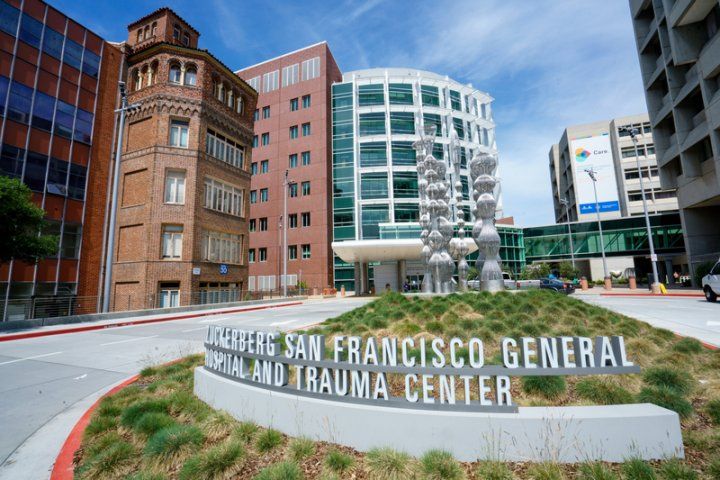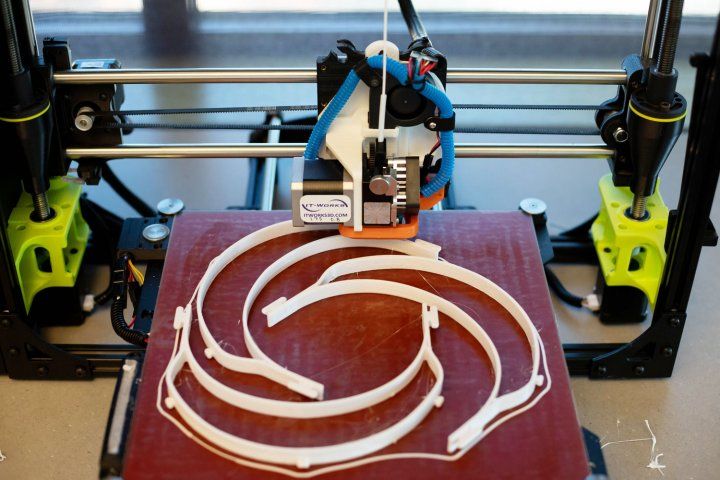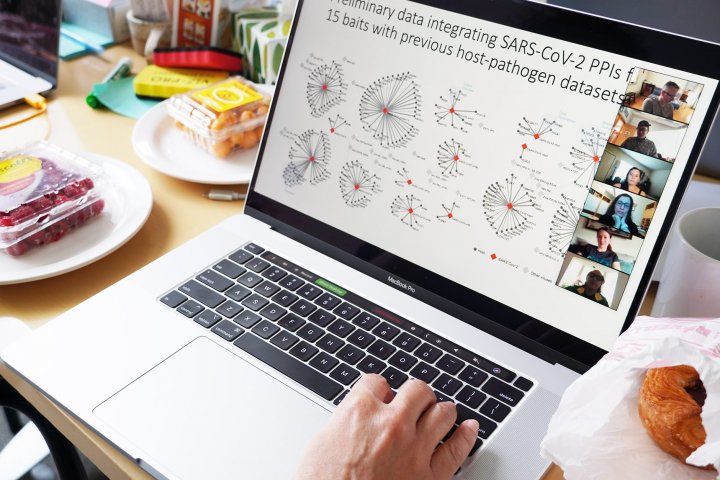Confronting COVID-19: Donors’ Generosity Put to Use at Lightning Speed Across UCSF
As COVID-19 continues to kill thousands of Americans and infect even more, UC San Francisco experts are driven to seek solutions to one of the most significant health challenges affecting the whole world.
Recognizing that UCSF is on the front line of the Bay Area’s response to this global pandemic, more than 800 donors have made gifts to the UCSF COVID-19 Response Fund to bolster our efforts. The fund has raised more than $20 million since it launched in early March and is supporting efforts like 3D printing of face shields for health care workers, providing infectious-disease experts with the resources to staff their COVID-19 testing labs, and determining the impact of the coronavirus on mothers and newborn babies.
Vigorously embracing their leadership roles, our faculty members are coming together to tackle this public health crisis from all angles.
Here’s a snapshot of what the University has done in only a few short weeks.
Collaborating to Build Capacity, Bridge Health Disparities
As part of a citywide response, UCSF Health partnered with hospitals across the City of San Francisco to prepare for an anticipated surge in patients suffering from coronavirus complications.
Donations to the COVID-19 Response Fund helped UCSF build out a new COVID-19 facility at Saint Francis Memorial Hospital that includes 40 hospital beds and an eight-bed intensive-care unit. In addition to medical staff, UCSF is enlisting nurse leadership to help replicate the staffing model used for the UCSF COVID-19 unit at Parnassus Heights. The Saint Francis facility results from a collaboration between the Hospital Council, the San Francisco Department of Public Health, Zuckerberg San Francisco General Hospital and Trauma Center (ZSFG), Dignity Health and UCSF Health.

A grant to UCSF from the Heising-Simons Foundation reflects UCSF’s public mission and commitment to health equity. This gift and others are funding a response initiative at ZSFG to increase access to COVID-19 diagnostic testing, expand clinical capacity, and support the care team. Patients served by ZSFG who could be homeless or unemployed, or who lack health insurance or documented immigration status, are especially vulnerable to the coronavirus because they don’t always have shelter, and staying healthy is typically only one of many challenges they face.
“ZSFG has a long history of providing outstanding care to the people of San Francisco, regardless of their ability to pay or immigration status,” said Kirsten Bibbins-Domingo, MD, PhD, MAS, vice dean for population health and health equity in the UCSF School of Medicine and a general internist at ZSFG. “UCSF is deeply committed to health equity and is proud to partner with ZSFG in this work, which will be especially important during this pandemic.”
Protecting Mothers and Babies
Clinicians currently don’t know how COVID-19 affects the health of pregnant women and their babies, but investigators from UCSF and UCLA intend to find out.
They recently launched PRIORITY (Pregnancy CoRonavIrus Outcomes RegIsTrY), a nationwide study of pregnant and postpartum women who are under investigation or have been confirmed to have COVID-19. Donations to the COVID-19 Response Fund have been deployed to conduct analyses to provide much-needed information about how to best counsel and manage infected pregnant women and their newborns. In the first week, the study enrolled 200 patients in the registry and received over 400 patient referrals representing more data on pregnancy than currently exists in all of the published COVID-19 literature combined.
On the patient front, the UCSF Newborn Maternal Telemedicine Program launched during the first week of April and will provide virtual home care for mothers and babies recently discharged from UCSF Benioff Children’s Hospitals in San Francisco and Oakland. This initiative will allow patients to visit with clinicians from the safety of their own homes during the COVID-19 crisis.
Putting Frontline Health Care Workers First
Addressing the need for more personal protective equipment (PPE), a multidisciplinary team of UCSF experts found an innovative way to increase supplies: create do-it-yourself face shields using 3D printers in UCSF’s Makers Lab, which is located in the Kalmanovitz Library.

3D printers make the headbands for PPE face shields in UCSF’s Makers Lab. Photo by Susan Merrell
Another group has been re-engineering hospital ventilators so they can be adjusted remotely – a change that reduces the need to wear and immediately discard contaminated PPE, helping make UCSF’s precious supply last longer. Seed funding from the COVID-19 Response Fund has provided helpful bridge money for several of these ideas.
“I am so proud to support UCSF’s response to this global health tragedy. Rapid action requires immediate resources, and I ask others to also consider ways they might contribute,” said Orlando Bravo, managing partner of the private equity investment firm Thoma Bravo and an early donor to the COVID-19 Response Fund. “UCSF leaders, faculty members, frontline health care workers, and students are all doing remarkable work to mitigate the impact of COVID-19.”
Fast-Tracking Innovative Research
UCSF has powered up its COVID-19 testing effort. Scientists at the Chan Zuckerberg Biohub (CZB) – an existing collaboration between UCSF, UC Berkeley, and Stanford University, three of the world’s leading biomedical research institutions – worked around the clock to establish a COVID-19 testing facility from scratch, remarkably, in only eight days. The facility immediately increased UCSF Health’s testing capacity from around 30 per day to more than 1,000, and the lab is now processing over 2,000 tests daily. On April 7, the lab announced that UCSF will offer free COVID-19 testing for 30 days to all nine Bay Area counties’ public health departments.
Another CZB team is tracking the spread and evolution of COVID-19 through real-time genome sequencing. Their work is enhancing our understanding of the pathology of the coronavirus and determining why it turns into a fatal respiratory disease for some patients and causes only mild symptoms – or no symptoms at all – in others. The findings could lead to antibody-based therapies, a vaccine, or both.

The international team from the QBI Coronavirus Research Group keeps up with their research through online video conference calls.
Researchers from the Quantitative Biosciences Institute (QBI) at UCSF are set on finding a therapy that will stop this disease in its tracks. Without losing any time, they formed the QBI Coronavirus Research Group (QCRG), a global consortium of more than 100 researchers focused on understanding the human proteins that enable this virus to spread. Their goal is to isolate existing drugs that could target these proteins to treat COVID-19 patients. QCRG’s partners in New York and Paris are currently testing more than 20 viable compounds against the live coronavirus.
“If ever there was a time for collaboration, it is NOW,” said Jerry Yang, founding partner of AME Cloud Ventures and co-founder of Yahoo, who, alongside his wife, Akiko Yamazaki, made a gift to support the effort. “The way we’ll defeat this virus is if people come together across continents and disciplines to share resources and knowledge. UCSF is uniting with other experts around the world to lead us out of this crisis and make sure we are better prepared next time.”
Embracing a Leadership Role
As Bay Area health leaders and city officials reflect on the past few weeks and the positive outcomes of one of the nation’s earliest shelter-in-place orders, UCSF has become a beacon for other medical centers across the country and around the world, playing a significant leadership role and providing a steady hand. The current priorities are ever-shifting but include increasing testing capabilities, developing the most effective therapies and a vaccine, establishing patient care best practices, and ensuring that resources are directed to where they will have the most impact.
“As UCSF marshals all the expertise of one of the world’s top academic medical centers toward a health challenge that is truly affecting the entire planet, we’re thankful for the support we’ve received from the UCSF community,” said Dan Lowenstein, MD, UCSF executive vice chancellor and provost. “Although we still face great uncertainty as to what the future holds, I’m extremely proud of how far we’ve come.”